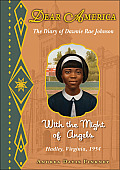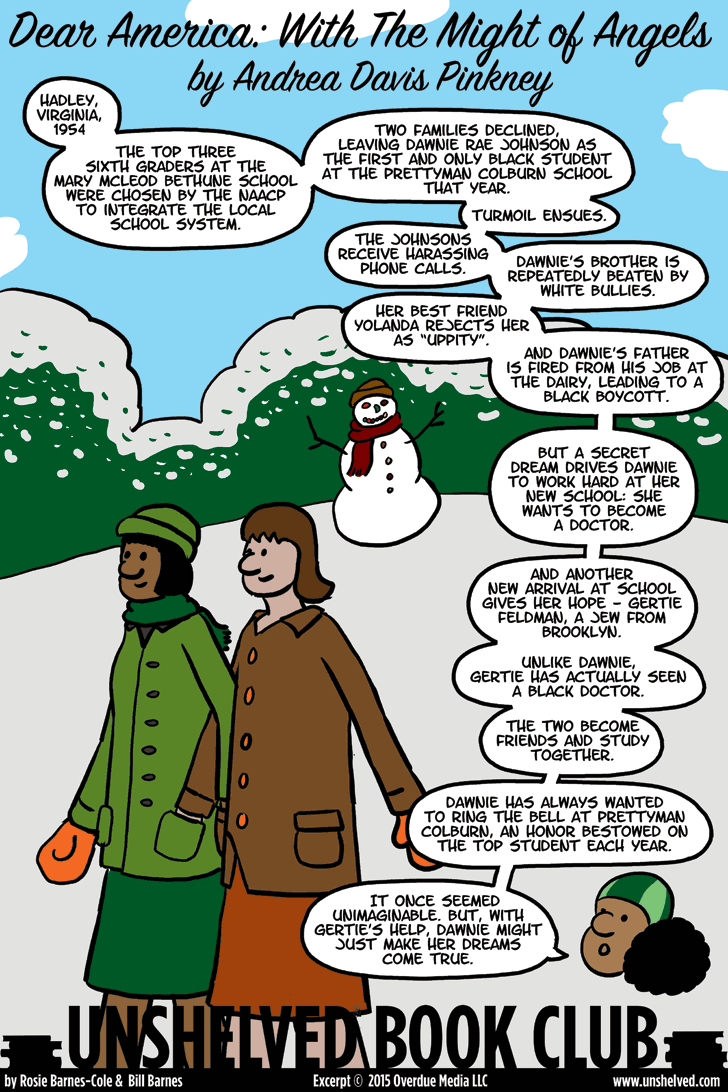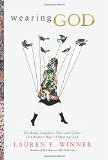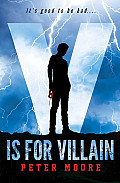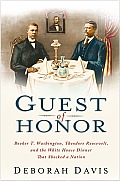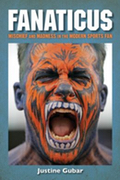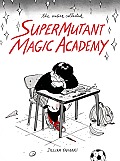Link to this review in the form of a comic strip by rosie tagged coming of age • historical fiction
Link to this review by emilyreads tagged biography
Winner, an Episcopal priest and author of Girl Meets God and Still, offers surprising perspectives on her encounters with God through close reading, personal reflection, and her experiences ministering to women in prison. The book requires more than a passing familiarity with the Bible and the Christian tradition. It is not an Anne Lamott-style spiritual essay collection but a more academic exegesis of God’s word as seen through commonplace objects and encounters: bread, laughter, clothing, breastfeeding, fire.
Why I picked it up: I’m always game for Episcopalian spiritual memoirs, and I’ve read and enjoyed several of Winner’s other books.
Why I finished it: I consider myself Biblically literate, but Winner consistently points out moments in the Bible that I had forgotten or glossed over: God’s failure (refusal?) to speak directly to Sarah, for example, when announcing her impending pregnancy; or the passage in Ezekiel 16 where God is shown as, for all intents and purposes, an abusive husband. Each chapter brought a new “aha!” or “huh …” moment for me.
It’s perfect for: My deacon, Rachel, newly ordained and graduated with her M.Div. She brings a different perspective to her sermons than our (younger, male) rector, and I think she’d find a kindred spirit in Winner’s earthly, earthy metaphors for God-with-us.
Link to this review by sarahhunt tagged superhero • coming of age
Brad Baron attends an academy for superpowered teens, but only because his older brother graduated and followed in their father’s footsteps as a member of the Justice Force. After a gym class requires mechanical repairs to his spine and leaves him temporarily deaf and blind (superpowered games can be pretty rough), it’s decided that he would be better off being reassigned to the alternative program with other under-powered siblings. He makes new friends who can control tech, make delicate weapons, and someone who just might have illegal psi powers. They don’t believe superhero teams are as good and pure as people think, and are looking to show the world the truth.
Why I picked it up: When I flipped it open, I saw that the book starts with a cover sheet indicating that the contents are a part of a classified government trial released in accordance with a United Nations Freedom of Information Law. Pretty compelling.
Why I finished it: Brad’s big brother is always trying to be a heroic example to “ordinary” people, but comes off as incredibly patronizing and shortsighted. The mounting evidence Brad finds about the flawed nature of the Justice Force makes me wonder how much his big brother really knows.
Readalikes: Soon I Will Be Invincible by Austin Grossman, which also follows the small choices that lead to super villainy.
Link to this review by robert tagged history
President Theodore Roosevelt (whose initials “TR” are used throughout Davis’ book), like presidents before and since, met with all sorts of people. But when he invited pioneering African-American educator Booker T. Washington over for dinner in October of 1901, a political furor erupted. Social historian Deborah Davis uses that incident, and the reaction to it, as the centerpiece for a book that mingles biography, political history, social history, and the struggle for civil rights.
Why I picked it up: At the last stamp show I attended, an exhibit mentioned TR had the president’s return address changed from “Executive Mansion” to “The White House” in response to the media storm and political fuss over this dinner. I thought someone must have written a book about it, and went looking for one.
Why I finished it: Davis starts off with a parallel biography of both Washington, born a slave, and TR, scion of a prominent New York society family. There are surprising parallels: they were about the same age, admired Abraham Lincoln, suffered the deaths of their beloved first wives, and were tormented by the antics of rebellious daughters. They were also both used to travel and public speaking. Washington made many fund-raising trips on behalf of his Tuskegee Institute. TR traveled extensively for his many jobs: Federal Civil Service Commissioner, Commissioner of the New York Police Department, cattle rancher, Assistant Secretary of the Navy, soldier, Governor of New York, Vice President, and President. Davis covers why TR wanted to meet with Washington — to check on the reputation of potential appointees to government jobs. She also discusses the significance of TR inviting the educator to dinner instead of just an office meeting; it was a concession to both their busy schedules, and also a sign of social equality.
The writing is engaging, and there’s an element of shock. Davis quotes from journalists of the time, verbatim, to show reaction to the meeting. Many passages use degrading and demeaning terms that would be unacceptable today.
Readalikes: For more White House history, try Margaret Truman’s The President’s House: 1800 to the Present The Secrets and History of the World’s Most Famous Home. Paul Laurence Dunbar, a poet who’s mentioned in Guest of Honor, captures some of the pressures and tensions African-American intellectuals of that era faced, and his most popular works explore the human condition through the sometimes difficult-to-read dialect of impoverished rural southern blacks. His Selected Poems would be a good companion read.
Link to this review by flemtastic tagged nonfiction
A serious, scholarly look at what happens when being a sports fan goes too far. Justine Gubar is a producer for Outside the Lines, an ESPN show that analyzes important issues in the sports world. Topics explored include selfie culture, the Lucifer effect, BIRG (Basking In Reflected Glow) and CORF (Cut Off Reflected Failure), and the explosion of social media and their effects on fandom. Gubar went to sporting shrines around the world to speak with former soccer hooligans, security experts, and self-identified, over-intense fans to find out the causes of rioting, internet trolling, parents’ little-league fights, and more.
Why I picked it up: If my satellite package ever gives the option for a “sports-only bundle”, I would save a ton of money. I watch ESPN every morning during breakfast to see if I missed anything the previous night, and then again every evening to see what just went down during the day. I am a committed fan, but I like to think I’m safe to be around. (Editor’s note: He is. Mostly.) I have done my share of letting the referee know about my displeasure, but I can honestly say I have never sworn aloud in public. (Editor’s note: I believe him.)
Why I finished it: The examples of extreme fandom through the book. One of the weirder incidents involved a Welsh rugby fan who hacked off his own testicles to celebrate when Wales beat England in 2005. This kind of behavior is nothing new, though — there were curse tablets buried under the Circus Maximus starting line in Rome, one of which was in the hope of causing the amputation of a chariot driver’s foot.
It’s perfect for: Todd, a friend of mine who considers himself a true Oakland Raiders fan. He would love how the author visits the Raiders’ stadium on an NFL gameday to see the 135 security cameras, as well as how the 450 people directly involved in crowd security work the game!
Link to this review by geneambaum tagged science fiction • paranormal • humor • coming of age • graphic novel
The students at the SuperMutant Magic Academy have the same problems and potential other high school students have. Plus superpowers. And magic.
Why I picked it up: Tamaki’s art in This One Summer was so good I’ll read everything she writes or draws forever.
Why I finished it: This was originally serialized online. Most vignettes are complete in a page, and the focus switches from character to character frequently. The result is a lovely, compelling, very broad view of the school and what its teen students (as well as a few teachers) are going through there. I loved the random moments, from Marsha and Wendy discussing how homoerotic sports are while watching some weird mashup of Quiddich and American football that involves flying with the help of bats to the D&D players who work both sex and lawyering into their games. And my heart broke for Marsha throughout — would she ever be able to admit her love for Wendy? And what would happen when she did?
It’s perfect for: My cousin Warren, who hates putting together puzzles. He’ll love the moment when Trevor uses his telekinetic powers to overcome the irritation of pieces that don’t fit together. Wally would like it, too, particularly this hilarious (slightly NSFW) moment where, when one student finds an issue of the new PowerWoman comic, another schools her about how sexist they are and why she should be reading GRAPHIC NOVELS.
Link to this review by geneambaum tagged picture book
Clara is taking the bus to her grandmother’s house by herself for the first time. Along the way she gets a flower, shares her cookies, and even stops a pickpocket.
Why I picked it up: I like picture books that are wider than they are tall.
Why I finished it: Most of the other passengers on the bus are friendly anthropomorphic animals, including a napping sloth (who gets a little too friendly with an older owl), a knitting cat, a mouse making a phone call, a friendly wolf, and a turtle who retreats into his shell. Each two-page spread is a single picture that captures the entire interior of the bus, using the wide format to perfect effect, and Dubuc’s soft pencil drawings make even the hulking bear affable.
Readalikes: Other books full of lovable animals, including A Little Book of Sloth. It also reminded me of Lost in NYC, another book about taking public transportation that’s filled with beautiful drawings.
